Entrepreneurship is the journey of a lifetime and the most beautiful one, but not many individuals are aware of it. Some of us wish to tremble winds atop the sea we second-guess, and that is often due to the misconceptions that hinder us from seeing the hi-res of real entrepreneurship.
Whether we found an account of someone who made big overnight or a myth about a genius who had been born with the ideas, these stories greatly hamper dreamers and possible businessmen. Here, we will clear many myths about entrepreneurship and, on the contrary, reveal the prospects of the business.

10 Common Myths About Entrepreneurship

- Myth 1: Entrepreneurs are Born, Not Made.
- Myth 2: You Need an Outbreak Idea to Thrive
- Myth 3: Entrepreneurship Increases Freedom and Flexibility
- Myth 4: Cash Rules All Things.
- Myth 5: It Requires a Bunch of Capital to Launch a Business.
- Myth 6: Failure Means the End of the Road
- Myth 7: Entrepreneurs Should Accept The Loneliest Hours Of Their Lives In Their Journey
- Myth 8: For You to Start a Business, You Must Give Up Your Day Job.
- Myth 9: Longer Working Hours Means Bigger Income.
- Myth 10: Only Youthful People Can Be Business Owners.
Myth 1: Entrepreneurs are Born, Not Made.
One of the most persistent myths permeate entrepreneurship is that entrepreneurs form a special group, who discover their skills from birth, and have this inbuilt ability to succeed in business. But things turned out to be very encouraging.
The talents including tackling risk and determination (to some extent) might be innate in some people. However, entrepreneurial skill is the result of both gaining real-life experiences and brewing education. Aspects of entrepreneurship are similar to those of any other profession: hard labor, invigorating, and learning.
Example: The best examples of business entrepreneurs like Jeff Bezos and Sara Blakely were not born the best business prodigies. On the contrary, they did not have a road map that they instantly followed; rather they advanced their knowledge while overcoming each encounter and challenge. Entrepreneurship is not about so-called inherent talent; it is all about endurance, a shortcoming of failure, a desire to grow, and a willingness to reshape yourself.
Myth 2: You Need an Outbreak Idea to Start Business
This is something many beginner entrepreneurs who wished that they had great business ideas that would turn them into millionaires mistake. When an innovation driver facility has a good idea, it’s the execution of even a simple idea that makes the difference between failure and success.
Example: In fact, Dropbox was not the pioneer of cloud storage undoubtedly, but its simple design and user experience significantly propelled it to the forefront. But it stands not just for the great idea but how winning the execution of it and the problem-solving matters.
Myth 3: Entrepreneurship Increases Freedom and Flexibility
Such images of entrepreneurs who take long, and sometimes exotic, vacations to faraway places or a beach give only a portion of the information one needs to work like an entrepreneur. It is during those initial steps of working in a startup when an employee will be involved in long working hours, a big workload, and probably some numerous sacrifices.
Entrepreneurship precipitating in the complete rigidity of a 9-to-5 job may seem a great achievement, but it is a fact that the entrepreneur has to keep up with the pressure, along with the resilience to get there.
Example: Consider a case like Lisa Price, the founder of Carol’s Daughter, which became one of the best-known beauty brands. In her days of starting up a company, Price was faced with the myth of unconditional freedom and flexibility in practice. She ignited the entire process in her kitchen, managing to combine her passion, day job, and family ownership. She was shocked by the fact that the image of being an all-free entrepreneur was nothing like she lived since that time.
Myth 4: Cash Rules All Things.
Even though entrepreneurship depends on profitability, business leaders mostly feel their calling which is their driving force. Starting a business for the ultimate goal of money-making is not adequate. There is no way to give a beautiful business without real interest or pain in what you are doing, as the challenges of this business can quickly turn overwhelming.
The ones that gain a competitive advantage in the long run, being the enterprises managed by enthusiasm and a firm vision stand out as they not only pursue money but are dedicated to their vision.
Example: Think of the story of Baked Goods TOMS Shoes, which came to be in 2006, after a trip by Blake Mycoskie to Argentina. Inspired by his travels in Argentina and the significant need for necessities like shoes, Mycoskie launched TOMS with a unique mission: they would promise to donate another pair every time the company sold the shoes. Thus, the “Buy One Give One” business model was not based on profitability. Instead, it originated from a desire to make a positive impact.
Myth 5: It Requires a Bunch of Capital to Launch a Business.
One of the most common myths is that starting a business needs a hefty sum of money at the beginning. Many companies were begun by the very people who had very little initial capital and some industries may require sizable startup funds.
Technology and the internet have made it possible for a lot less money to begin and advertise a trade, than in the past. Likewise, business owners should be well informed that many investors are willing to let entrepreneurs use their money such as loans, grants, and online crowdfunding platforms.
Example: Airbnb blends funds for beginning a business out of the minds of the people as money is not required in general to initiate a business. The company founders, Brian Chesky, and Joe Gebbia, started Airbnb while they were working on a student project to solve their rent problem by renting out their living room space with air mattresses. Although it started with little money and first-timers in hospital air, the aim was not luxury but to give tourists affordable, unique wantonings and allow homeowners to make some extra money.
Myth 6: Failure Means the End of the Road
Entrepreneurs are scared of the possibility of failure and that is why they hesitate to try. Unsuccessful situations instead of something unnatural or negative are rather a brick on the path to success. History is full of people who built business empires but had to wield mettle and undergo the toughest challenges sometimes.
Example: Henry Ford’s first two enterprises flopped before he became Ford Motor Company’s founder. The result of success is a major part of being an entrepreneur: you have to learn from each mistake you make, and never give up on your efforts.
Myth 7: Entrepreneurs Should Accept The Loneliest Hours Of Their Lives In Their Journey
Collaboration as well as finding a mentor is very key; in the entrepreneurship path. No species exists on their own. Nations cooperate with others in our interdependent world. Developing a support group comprised of individuals with similar interests, seeking the help of mentors, and partnering with other people can be beneficial as it will provide an avenue for you to receive the much-needed support and resources in working toward your goals.
Succeeder entrepreneurs have learned that building a solid team that comprises their diverse capabilities and experiences is a must factor in attaining desirable outcomes of business endeavors.
Example: Steve Jobs, the iconic co-founder of Apple Inc., rises as a counterpart to the allegation that “Entrepreneurs Must Go Alone” is only a myth, because of his misadventure. Although Jobs stands high, he repeatedly highlighted the importance of teamwork and collaboration in craving the key to success that he had attained during his lifetime. He teamed up with Steve Wozniak who would start Apple from their garage and thus, the power of collaboration and partnership was well highlighted even from the company’s infant stage. Job still learned by surrounding his team with experts in the fields of design, engineering, and marketing talents. They were crucial in enabling him to invent such innovative products as the iPhone and the Macintosh.
Myth 8: For You to Start a Business, You Must Give Up Your Day Job.
Many successful businesses are the fruit of individual people’s persistence to adopt part-time and gradually full-time entrepreneurship when they find the business starts to grow. However, one need not necessarily resign from their job if the idea of a new business enterprise comes across their minds, because this is not the only way out. One also can spend some time mastering their entrepreneurial skills and simultaneously keeping the daily job earnings or some savings as security until the business becomes a full-time job.
Example: That is Sarah Blakely who is the founder of Spanx. Whilst this looks no more than ordinary, the story behind it was Blakely selling fax machines around the door and glassing her idea of Spanx in the off-hours. She’s already made $5,000 in savings and has an excellent product that she has thoroughly researched and developed at night after a day job.
Myth 9: Longer Working Hours Means Bigger Income.
The fact is that while hard work is necessary, smart work, delegation, and efficiency go far and beyond to produce exceptional results rather than the long indecent, unending hours. A test conducted by Stanford University says that an employee’s productivity will go down dramatically, once he is forced to work 50 hours per week. One of the key attributes of victorious entrepreneurs is restful self and work-life maintenance with no work exhaustion to sustain motivation and endurance.
Example: Elon Musk, CEO of Tesla and SpaceX, serves as a current example that super productivity doesn’t necessitate you being a workaholic. He worked more than 100 hours a week for both companies. However, his main contribution to history is that he inspires us to emphasize smart working over merely long hours. He mentions many times that a manager should prioritize the essential activities that affect the firm’s performance that are not just hours long.
Myth 10: Only Youthful People Can Be Business Owners.
This is not a prerequisite for being an entrepreneur. Experience is also a good improvement. Thus, you can start late or never give this age a chance for progress. For instance, many famous and successful entrepreneurs were late in their careers but still became famous with names like Mark Pincus of Zynga and Arianna Huffington from The Huffington Post.
The age limit should not be treated as a cut-off point when it comes to pursuing entrepreneurship; determination, commitment, and unshakable spirit should be the only thing that matters.
Example: Colonel Sanders, the owner of Kentucky Fried Chicken (KFC), is the best illustration that believes “Young People Are Not the Only Ones Who Can Be Successful Entrepreneurs.” Colonel Sanders was 65 when he decided to franchise his fried chicken operation and that was after his first social security check came in. During that year, with a unique combination of 11 herbs and spices that an aspiration of success, Sanders changed KFC from a neighborhood fast-food restaurant into a global empire.
Conclusion
Let’s conclude the myths about entrepreneurs, The entrepreneurship can be a complex, dramatic, and highly profitable course. Through this process, we aim to dispel these myths and motivate those who desire to start their businesses but are stuck worrying about what others say. In case you are passionate, determined, and ready for education and adaptability, you are a step ahead of most entrepreneurial rigors. In conclusion, the entrepreneurial career of every individual is different and you are now free to tell your own.



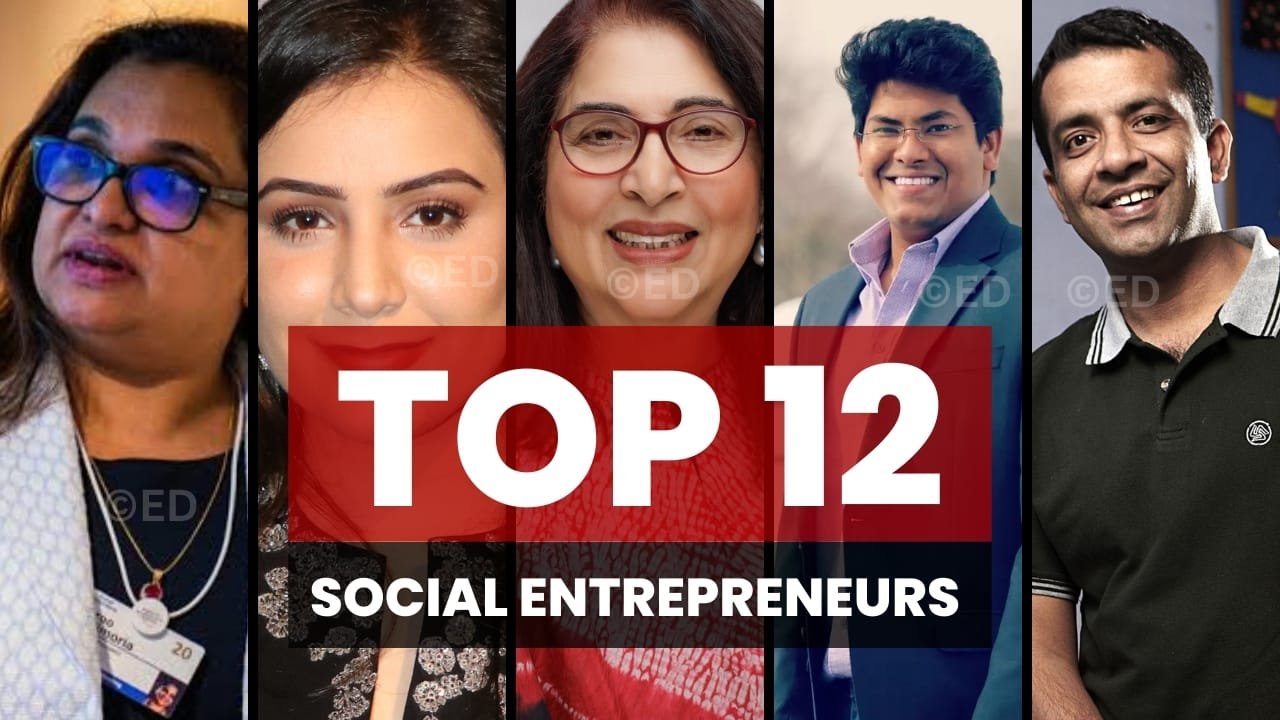

Leave a Review